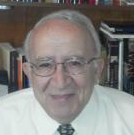OPINION Interfaith Dialogue: Challenges and Limits
I believe Rabbi Rosen misses the point of Rav Di Segni‘s fundamental position on the limits and possibilities of interfaith dialogue anchored in understanding, reconciliation, as well as respect for axiomatic differences.
There is no objection here for Christians to render in Christian terms the sufferings of the Shoah to a Christian audience. The problem is the presence, participation, and at least implied endorsement of Jewish authorities, especially rabbinical ones, at a concert of this sort.
At the cost of oversimplying a highly complex argument, notwithstanding recent Christian theological reformulations recognizing the viability of the Jewish people whose covenant remains valid and complementary to the “new covenant”, Christological doctrines (divinity, resurrection, salvation in Christ) have not changed much. It is, therefore, misleading to characterize Christianity, as Rabbi Rosen asserts, as an interpretation based on Judaism when it remains in essence, as it has been for the last two millenia, a rejection of Judaism based on Mosaic Law.
While the Church disavows conflict with the Synagogue today, it still considers Judaism its “internal foe”, as put by Rozensweig, in so far as Judaism does not accept Christianity as the fulfillment of its prophetic promises. Not respecting fundamental differences plays into the hands of critics on both sides of “relativistic pluralism” and does little to promote self-understanding and understanding of the other. Had the symphony concert been modified in addressing a Jewish audience to at least render Jewish suffering in Jewish terms as in the Book of Job, one could consider the matter more balanced.
As it was, the symphony did indeed “sound wrong”.
*University of Maryland, formerly Senior Lecturer at Bar Ilan and, Senior fellow at Hebrew University (Truman Inst.) World Bank and Inter-American Development Bank

